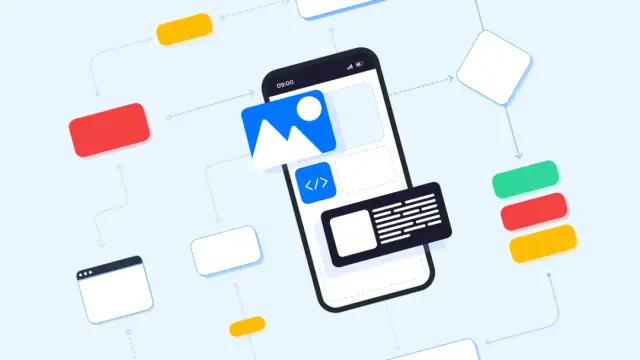App Designer's Checklist for GDPR Compliance in No-Code Apps
Stay GDPR-compliant while using no-code platforms to build apps. This article provides an app designer's checklist and tips to meet privacy regulations, featuring AppMaster platform for no-code development.

Understanding GDPR Basics
The General Data Protection Regulation (GDPR) is a set of rules enacted by the European Union (EU) that aims to protect the privacy of EU citizens. It was introduced as a way to give users more control over their personal data and to implement a modern, unified data protection framework across all EU member states.
GDPR applies not only to EU-based companies but also to any organization that processes personal data of individuals living within the EU. It means that if your no-code app targets or has users in the EU, you need to ensure that it complies with GDPR.
Personal data, according to the GDPR, includes any information that can be used to identify a person directly or indirectly. This may encompass names, email addresses, phone numbers, identification numbers, location data, or even IP addresses.
GDPR compliance involves implementing various measures to protect personal data, including:
- Using privacy by design and default principles.
- Obtaining proper consent for data processing.
- Informing users about their rights related to data protection.
- Complying with data breach notification procedures.
- Documenting data processing activities.
- Appointing a data protection officer if required.
Importance of GDPR Compliance
Ensuring GDPR compliance is crucial for no-code app designers for several reasons:
Legal requirements and potential penalties
Failure to comply with GDPR can result in significant fines. Organizations can be fined up to €20 million or 4% of their annual global turnover, whichever is higher, for the most serious breaches. Even less severe violations can attract fines up to €10 million or 2% of annual global turnover. By adhering to GDPR requirements, developers can avoid these costly penalties while ensuring the lawful processing of personal data.
Trust and reputation
Consumers are growing increasingly concerned about their data privacy. By assuring users that your no-code app is GDPR-compliant, you build trust with them. Protecting users' personal information can boost your app's reputation and foster customer loyalty.
Competitive advantage
Being GDPR-compliant gives your no-code app a notable advantage over competitors not adhering to privacy regulations. Clients and users will more likely prefer your app knowing that it meets recognized data protection standards, further strengthening your market position.
Facilitating international data transfers
GDPR compliance enables the secure exchange of personal data between your no-code app and other entities operating in the EU or elsewhere. It helps ensure data transfers are conducted lawfully, without violating privacy rights, and providing a smooth and hassle-free experience for your users.
No-Code Platforms and GDPR Compliance
In recent years, no-code development platforms like AppMaster have revolutionized how businesses create web, mobile, and backend applications. These versatile platforms enable users with no programming knowledge to bring their ideas to life through visual design tools and intuitive interfaces. Still, it's crucial to consider GDPR compliance while using no-code platforms to build your apps.
No-code app builders ensure that the apps they create adhere to GDPR requirements. This means implementing privacy by design principles, taking data protection measures, and having proper user consent mechanisms. Merely using a no-code platform does not automatically guarantee that your app complies with GDPR. It's important to follow a comprehensive checklist and adapt your app design accordingly.
Fortunately, no-code platforms like AppMaster help facilitate GDPR compliance by providing features and tools to safeguard user data. As you build your app, take advantage of these capabilities to address the essential aspects of GDPR and avoid potential pitfalls and issues. Remember that while no-code platforms offer an excellent foundation for app-building, GDPR compliance relies on how you design and implement your app.

AppMaster Platform's GDPR-friendly Features
AppMaster is a powerful no-code platform that allows developers to create web, mobile and backend applications in a fraction of the time compared to traditional software development. When it comes to GDPR compliance, AppMaster offers a range of features that ensure the security and privacy of user data while helping app designers maintain GDPR compliance efficiently. Some of these features include:
- Data Encryption: AppMaster supports encryption of sensitive data, enabling app designers to protect user information. This helps comply with GDPR's requirement to secure personal data against unauthorized access and data breaches.
- Data Access Controls: AppMaster provides the ability to specify access control levels for different user roles, ensuring that only authorized individuals can access certain data. This is crucial for GDPR compliance since it prevents unauthorized access to personal data.
- Database Audits: AppMaster offers built-in database auditing, which helps track and monitor data processing activities within the app. This is an essential feature for app designers to maintain a record of data processing activities, as required by GDPR.
- REST API and WSS Endpoints: AppMaster's REST API and WSS Endpoints help developers integrate their app with third-party services and comply with GDPR's data processing requirements. When using these features, app designers can ensure that data is transferred securely and compliantly between systems.
- Open API Documentation: To maintain transparency and provide information about data processing activities, AppMaster automatically generates Open API (Swagger) documentation for server endpoints.
While these features help adhere to GDPR requirements, app designers should remember that they are just starting points. Compliance requires constant vigilance, and app designers must continually evaluate their applications to ensure they remain in line with GDPR requirements.
App Designer's Checklist for GDPR Compliance
App designers working on no-code platforms should adhere to the following GDPR checklists to ensure their apps meet privacy regulations:
- Privacy by Design: Begin by incorporating GDPR principles and privacy regulations into every stage of the app design process. Make sure to address data minimization, user rights, and privacy safeguards from the very beginning.
- Appropriate Data Collection: Limit data collection to only what is necessary for your app to function. Avoid collecting information that isn't relevant to your app's purpose, as this can lead to noncompliance.
- Clear Privacy Policies: Your app should have a clear and comprehensive privacy policy that outlines the types of data you collect, how you collect it, why you collect it, and how users can control their data.
- User Consent for Data Collection: Ensure users agree to your data collection practices before using your app. Implement transparent consent mechanisms and allow users to opt-in or out of data collection as required.
- Data Encryption and Storage: Safeguard personal data by encrypting it both in transit and at rest. Furthermore, ensure data is stored securely, and adhere to GDPR's requirement for data storage limitation.
- Data Access Controls: Define and implement proper data access controls based on user roles, ensuring only authorized individuals can access certain data.
- Third-party Integrations and Data Transfers: Consider GDPR obligations when integrating your app with third-party services or APIs. Make sure data transfers are compliant with GDPR requirements and conduct regular audits of these third parties.
- Regular Audits and Updates: Regularly audit your app for GDPR compliance, updating policies and practices as needed. Also, maintain a record of your privacy efforts, including data processing activities and consent mechanisms.

Practical Tips for Ensuring GDPR Compliance
To further help you maintain GDPR compliance in your no-code apps, consider the following practical tips:
- Be Transparent: Inform users about your app's data collection practices and allow them to manage their data. Offer ways for users to delete their data, understand what data is being collected, and how it is being used.
- Encrypt Sensitive Data: Always encrypt personal and sensitive data both in transit and at rest. This goes a long way in protecting user information and meeting GDPR security requirements.
- Limit Data Storage Duration: Avoid storing data for longer than needed, and ensure you have a process in place to delete data that is no longer required.
- Conduct Regular App Audits: Schedule periodic audits to check your app's compliance status and identify areas needing improvement. By performing regular audits, you can detect and fix compliance issues before they become bigger problems.
- Keep Your App Up-to-date: Ensure your app is regularly updated with the latest security enhancements and features. This not only helps maintain compliance but also ensures your app remains competitive in the market.
- Document Your Efforts: Maintain a record of all your GDPR compliance efforts, including privacy policies, data processing activities, and consent mechanisms. This documentation may prove invaluable in the event of an audit or if you need to demonstrate your app's GDPR compliance to authorities.
Following these practical tips and the app designer's checklist for GDPR compliance, you can build no-code apps on platforms like AppMaster while maintaining GDPR requirements. Keeping user data secure and respecting privacy regulations is the responsibility of every app designer, and these guidelines will help ensure your app design adheres to these important standards.
Compliance Issues to Watch Out For
While no-code platforms like AppMaster provide numerous features to help app creators ensure GDPR compliance, it's still essential to be vigilant and watch out for potential pitfalls. Here are some of the common issues that you should be aware of when designing your no-code app:
Lack of Privacy by Design
Privacy by design is the cornerstone of GDPR compliance. It means that privacy should be considered and integrated into all stages of app development. In some cases, app designers may neglect this principle when building apps with no-code platforms, leading to potential compliance issues. To avoid this, make sure you thoroughly evaluate the privacy aspects of your app during the design process and implement appropriate measures to protect users' personal data.
Insufficient User Consent Mechanisms
GDPR requires that app users must provide explicit consent for the collection, processing, and storage of their personal data. Failing to implement effective user consent mechanisms in your no-code app can result in non-compliance. Ensure that your app includes clear and user-friendly consent options to collect, process, and store personal information, keeping in mind that users should be able to withdraw their consent just as easily as they give it.
Lack of Data Minimization and Retention Policies
Data minimization and retention policies are vital elements of GDPR compliance. It entails collecting only the data necessary for the app's specific purpose and storing it for as little time as possible. No-code app designers should carefully evaluate the data they collect, ensure it serves a legitimate purpose, and limit its storage period. Implementing these practices will help reduce the risks associated with personal data breaches and potential fines for non-compliance.
Data Transfer to Third Parties or External APIs
When leveraging external services and APIs as part of your no-code app, it's crucial to know that data transfer to third-party platforms can affect GDPR compliance. The third-party services and APIs you use must adhere to GDPR rules, or your app could be non-compliant. Before integrating external tools into your app, research and assess their privacy practices and ensure they follow GDPR regulations.
Inadequate Security Measures
Even when using no-code platforms with built-in security features, it's vital to ensure your app has sufficient security measures to protect users' personal data. Regularly review your app's security settings and update them as necessary. Also, monitor advances in security best practices and your app's potential vulnerabilities.
Conclusion
GDPR compliance is critical for no-code app designers, not only to protect user data but also to avoid potential fines and damage to your reputation. No-code platforms like AppMaster offer valuable tools and features to help creators design GDPR-compliant apps, but it's crucial to follow the provided GDPR compliance checklist and monitor your app for potential compliance issues.
By understanding the GDPR requirements, implementing privacy by design, ensuring effective user consent mechanisms, and thoroughly evaluating external APIs and third-party services, you can design no-code apps that not only delight your users in functionality but also respect their right to privacy and data protection.
FAQ
GDPR (General Data Protection Regulation) is a set of European Union regulations that aim to protect the privacy and personal data of EU citizens.
No-code app builders are responsible for ensuring that the apps they create comply with GDPR requirements. This means implementing privacy by design, data protection measures, and having appropriate user consent mechanisms.
Yes. AppMaster is aware of GDPR requirements and offers features to help you build GDPR-compliant apps. However, it's important to follow the given checklist and adapt your app design accordingly.
The GDPR compliance checklist is a guide for app designers when creating no-code apps. It helps ensure that the app meets GDPR requirements, protecting user data and avoiding potential fines.
Some tips include using clear privacy policies, encrypting sensitive data, limiting data storage duration, and regularly testing and updating your app to ensure continued compliance.
Yes. Common issues include failing to implement privacy by design, insufficient user consent mechanisms, and not considering data transfer to third parties or external APIs.
Privacy by design is a principle that states that privacy should be considered at every stage of app development. It means implementing appropriate safeguards and creating a culture of privacy within your app.





